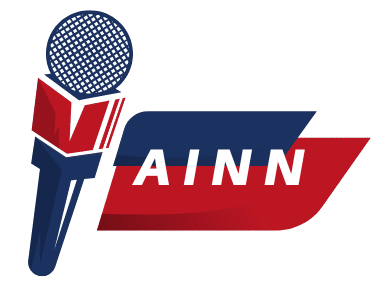One morning you wake up, check your daily news feed, and encounter headline after headline declaring, “AI Just Took Your Job!” Panic ensues. But instead of succumbing to fear, let’s take a deep breath and scrutinize what’s really going on. Has artificial intelligence truly placed your livelihood at risk, or are we witnessing a transformative shift in the job landscape?
From chatbots helping customers in real time, to AI-generated art, articles, and even self-driving vehicles, artificial intelligence is reshaping industries faster than ever before. Recently, Tesla showcased its new AI capabilities and autonomous technology, further sparking this heated conversation. Naturally, this raises important questions for all of us who depend on stable employment. Let’s dive deeper into what these innovations mean, how markets are adjusting, and ultimately, whether you should be worried about your job security.
## The Rise of AI and the Job Market: What’s Actually Happening?
Artificial intelligence isn’t a futuristic fantasy anymore; it’s here, and it’s constantly evolving. We’ve witnessed AI enhancing efficiency and productivity across numerous sectors. Jobs traditionally done by humans—like customer support, content creation, data analysis, and even creative roles—are now increasingly handled by algorithms and machine learning models.
But let’s put things into proper perspective: **AI is boosting creativity and productivity rather than entirely eliminating jobs**. While it may handle repetitive tasks efficiently, humans still play a vital role, offering emotional intelligence, creativity, and critical thinking capabilities that current AI systems lack.
AI, in many instances, complements human work instead of entirely replacing roles. For instance, human-marketing professionals use AI to sift through massive data quickly, allowing them to spend more time on creative campaigns and strategy rather than mundane administrative tasks.
## Jobs at Risk from AI Advancements
Let’s be honest—some roles do have reasons to remain vigilant. Historically, any technological revolution displaces certain jobs while creating others. It was true during the Industrial Revolution, the advent of computers, and now the era of artificial intelligence.
Highly repetitive, predictable, and easily automated tasks might face considerable disruption. If your job involves routine data entry, basic content writing, or repetitive customer support work, you likely need to prepare yourself for significant shifts. Industries heavily relying on repetitive manual labor—for example, factories involved in assembly work—are already embracing automated systems.
It’s crucial to understand that **automation targets tasks, not entire jobs**. Instead of despairing, professionals in these roles should actively upgrade or diversify their skill sets to stay relevant.
## Opportunities AI is Creating Right Now
Despite concerns, it’s important to remember that new technologies don’t merely eliminate jobs; they also create them. AI brings enormous opportunities for people willing to learn and adapt.
Careers in AI programming, data analytics, robotics engineering, and AI ethics will boom as society integrates technology deeper into daily operations. Industries such as healthcare, technology, finance, and education greatly benefit from AI advancements. Demand is skyrocketing for specialists who can manage, maintain, and ethically refine AI processes and tools, opening an abundance of high-paying and intellectually stimulating jobs.
Even fields like content creation and digital marketing benefit from marrying creative human talent with AI-driven tools. Creators now can generate strategies informed by deep consumer insights and produce stronger, more tailored communication.
In short, the growth in emerging job markets will likely offset or surpass AI-induced job losses. The key lies in remaining agile, open-minded, and responsive to new opportunities.
## How to Future-Proof Your Career in an AI-Driven World
Facing significant shifts in the workplace landscape, an obvious question comes to mind: what should you do to **protect your job in the age of AI**?
First, learn to embrace continued education. Acquiring technical and digital literacy skills can position you ahead of the curve. Familiarizing yourself with how AI works, how it’s implemented across industries, and what ethical issues it presents can open up new career paths.
Second, focus on what makes you uniquely human—skills that are challenging for AI to replicate. Emotional intelligence, leadership, creativity, problem-solving, critical thinking, and communication prowess remain paramount. By developing and showcasing these uniquely human attributes, you’re safeguarding your professional role in the age of technological disruption.
Third, cultivate adaptability. A mindset that embraces lifelong learning positions you as a valuable asset in a rapidly changing marketplace. Embrace openness toward technology and demonstrate willingness to adapt to innovative work environments.
## Wrapping Up: AI is Changing, Not Eliminating, Jobs
Yes, AI is here to stay—and it’s reshaping the job market in profound and undeniable ways. Sure, some roles will change and even vanish, but others will flourish and new job opportunities will emerge. The truth is, **AI will never fully replicate the creativity, empathy, and nuanced emotional intelligence unique to humans**.
Instead of viewing artificial intelligence as your competitor, think of it as your new coworker—one who can amplify your strengths, enhance your skills, and help you reach new professional peaks.
Want an even deeper dive into the latest AI developments? Watch the full YouTube video for more about Tesla’s disruptive advancements and a broader viewpoint on how to stay ahead in this age of AI-driven innovation.
